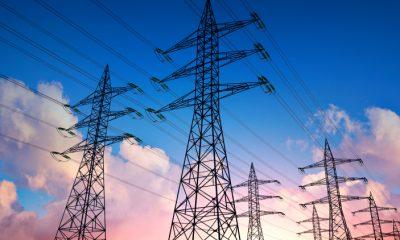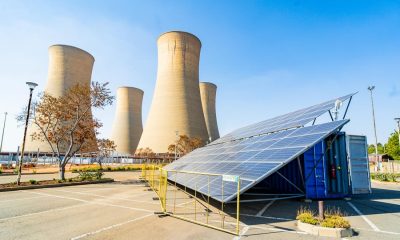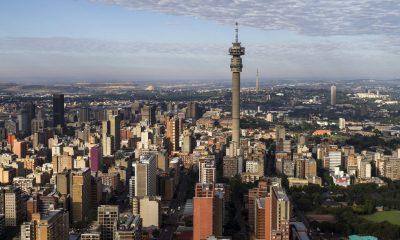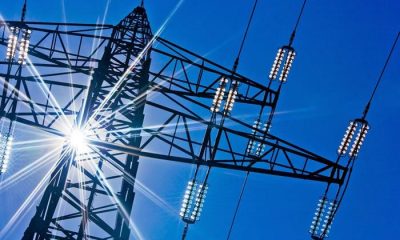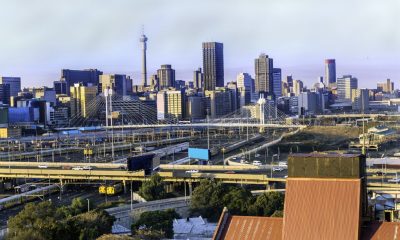Business
How a R26.5 Billion World Bank Loan Could Help Rewire South Africa’s Infrastructure Future
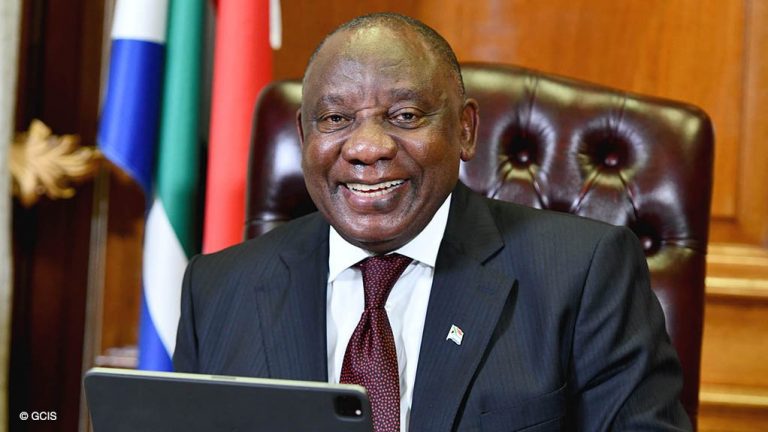
South Africa has landed a lifeline. A hefty R26.5 billion loan from the World Bank is headed to Pretoria, earmarked for revitalising the country’s ailing infrastructure. It’s more than just a cash injection, it’s a vote of confidence in the government’s promised reforms to turn the tide on economic stagnation.
At the heart of the deal? Power and logistics. The loan will be channelled toward stabilising Eskom’s creaky electricity grid and boosting the freight muscle of Transnet, the beleaguered rail and port operator. These sectors are widely seen as the ball and chain shackling South Africa’s economic potential.
Why now? Because the cracks have become chasms
Years of mismanagement, load-shedding and bottlenecks in moving goods have made it painfully clear: South Africa’s state-owned enterprises (SOEs) are overdue for structural surgery. Load-shedding has disrupted businesses large and small, while clogged ports and unreliable railways have stalled exports and pushed costs through the roof.
The World Bank’s loan, worth $1.5 billion, arrives with reform-minded strings attached. It’s aimed at breaking up monopolies, modernising outdated systems, and easing the stranglehold that SOEs have had on critical services.
“The World Bank isn’t just handing over a cheque,” says Nomvula Mokoena, a public finance analyst based in Johannesburg. “They want to see structural change, not just short-term band-aids.”
Where the money goes: Eskom and Transnet get a lifeline
The bulk of the funding will be directed toward strengthening Eskom’s grid to accommodate more renewable energy sources. It’s a necessary move as the country looks to pivot away from its heavy reliance on coal, in line with climate commitments.
Transnet, meanwhile, stands to benefit from investments aimed at unclogging South Africa’s freight routes. Rail infrastructure has been deteriorating, and ports like Durban have faced backlogs that affect trade efficiency and global competitiveness.
Finance Minister Enoch Godongwana welcomed the move, calling it “an important step forward” in South Africa’s journey toward modernising its infrastructure. “Our ongoing partnership with the World Bank will assist us to move forward with greater speed on the reforms vital to transforming our infrastructure landscape,” he said.
A cautious welcome: Public response and political undertones
On social media, South Africans were divided. Some hailed the loan as a necessary investment in a struggling system, while others questioned whether the money would be used effectively.
One user on X (formerly Twitter) wrote: “Good news if it’s used wisely. But we’ve seen billions disappear before.” Another quipped, “Does this loan come with a ‘no looting’ clause?”
Critics have pointed to the checkered history of SOEs in South Africa where allegations of corruption, mismanagement, and inefficiency are all too common. For the reforms to work, many argue, it’s not just about money. It’s about governance.
The bigger picture: SA’s global standing and climate ambitions
The World Bank’s funding aligns with a broader global trend: multilateral institutions supporting just transitions in developing nations. As South Africa works to lower its carbon emissions while growing its economy, investments in renewables and clean logistics are becoming crucial.
This loan could also improve investor sentiment. It signals that international bodies still believe in the country’s ability to get back on track — provided the right levers are pulled.
But can this loan fix the system?
The question now is whether this funding will lead to real transformation or simply delay the inevitable collapse of outdated systems. The loan is a bet that South Africa can, with the right push, become a modern infrastructure hub that supports inclusive growth and sustainable development.
Still, for communities living under the shadow of Eskom’s blackouts or businesses battling delayed freight, the hope is simple: that this money brings lights on and goods moving.
In a country hungry for change, R26.5 billion might not fix everything, but it’s a start.
{Source: Moneyweb}
Follow Joburg ETC on Facebook, Twitter , TikTok and Instagram
For more News in Johannesburg, visit joburgetc.com

